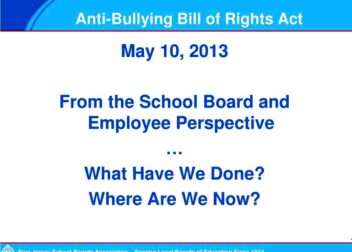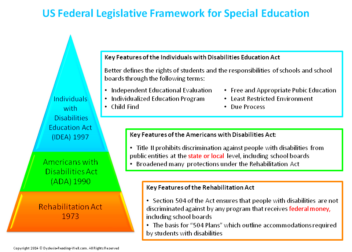Cyberbullying Prevention in Pennsylvania Schools
Cyberbullying has become a major issue in schools across Pennsylvania, with students being targeted through social media, messaging apps, and other online platforms. It involves the use of digital technology to harass, embarrass, or harm others, making it a serious problem for students, parents, and educators alike. The rise in internet usage and smartphone access has only increased the risk of cyberbullying, and schools in Pennsylvania are actively working to tackle this growing concern.
To fully address cyberbullying, it’s important to understand how it differs from traditional bullying. Cyberbullying can happen at any time and is not limited to physical school hours. Additionally, it allows the bully to remain anonymous, which can make the victim feel even more isolated. Raising awareness and promoting open communication between students, teachers, and parents is critical in preventing and addressing cyberbullying.
The Impact of Cyberbullying on Students

Cyberbullying can have devastating effects on students, both emotionally and academically. It can lead to feelings of anxiety, depression, and low self-esteem, which can significantly affect a student’s well-being. In severe cases, cyberbullying may even lead to self-harm or suicidal thoughts. The emotional impact can cause students to avoid school, withdraw from social activities, and suffer from poor academic performance.
Here are some of the key impacts of cyberbullying on students:
- Emotional Distress: Victims often feel isolated, embarrassed, and powerless.
- Decline in Academic Performance: The stress and distraction caused by bullying can lead to lower grades and decreased participation in class.
- Health Issues: Physical symptoms like headaches, stomachaches, or trouble sleeping may arise due to the stress caused by cyberbullying.
- Long-Term Effects: The trauma from bullying can affect victims well into adulthood, impacting their relationships, mental health, and self-worth.
Addressing the emotional and psychological effects of cyberbullying is just as important as stopping the bullying itself. Schools should provide counseling and support for students affected by cyberbullying, while also promoting a culture of respect and kindness.
Laws Addressing Cyberbullying in Pennsylvania
Pennsylvania has enacted several laws aimed at addressing cyberbullying in schools. These laws are designed to protect students from harassment and ensure schools take the necessary steps to prevent and respond to incidents of cyberbullying. Understanding these laws helps both educators and parents stay informed about their rights and responsibilities when it comes to protecting children.
Key laws related to cyberbullying in Pennsylvania include:
| Law | Description |
|---|---|
| Act 26 of 2015 | This law specifically addresses cyber harassment of a child, making it a criminal offense. It provides legal consequences for those found guilty of engaging in cyberbullying. |
| PA Anti-Bullying Law | This broader law requires schools to adopt and enforce policies that prohibit bullying, including cyberbullying, and mandates reporting procedures for such incidents. |
These laws emphasize the importance of schools taking an active role in preventing cyberbullying, ensuring that students feel safe in both physical and virtual environments. Schools are required to educate students about appropriate online behavior and the consequences of cyberbullying, as well as establish clear procedures for reporting and investigating complaints.
Role of Schools in Preventing Cyberbullying
Schools play a crucial role in preventing cyberbullying, as they are often the first line of defense when it comes to identifying and addressing the problem. By creating a safe and supportive environment for students, schools can reduce the risk of cyberbullying and help those affected by it. Prevention efforts require a combination of strong policies, teacher involvement, and student education.
Here are some of the key roles schools can play in cyberbullying prevention:
- Clear Anti-Bullying Policies: Schools should establish clear and strict anti-bullying policies that specifically address cyberbullying. These policies need to outline the consequences for engaging in cyberbullying and the procedures for reporting it.
- Teacher Training: Teachers need to be trained to recognize the signs of cyberbullying, even when it happens outside of school. Training helps educators understand how to support victims and how to intervene effectively.
- Student Education: Schools should educate students about the effects of cyberbullying, encouraging them to think about how their online behavior can impact others.
- Support Systems: Schools should have counselors or staff members available to support students who are victims of cyberbullying, offering a safe space for them to share their experiences and seek help.
By creating a culture of respect and open communication, schools can foster an environment where students feel empowered to speak up and prevent cyberbullying before it escalates.
Cyberbullying Reporting Mechanisms for Students
One of the most important steps in addressing cyberbullying is providing students with safe, accessible ways to report incidents. Many students are hesitant to speak up, either out of fear of retaliation or because they believe nothing will change. However, having reliable reporting mechanisms in place encourages victims and witnesses to take action.
Some common reporting mechanisms used by schools include:
- Anonymous Tip Lines: Schools can set up anonymous reporting systems where students can report cyberbullying without fear of being identified. This can be done via phone or an online platform.
- Designated School Staff: Students should know which teachers or counselors they can talk to about cyberbullying incidents. Schools should make it clear who is responsible for handling reports.
- Online Reporting Forms: Schools may provide digital forms where students can submit details of the cyberbullying incidents, including screenshots or other evidence. This ensures that reports can be documented easily.
Encouraging students to report cyberbullying helps the school take timely action and offers support to the victims. Schools should also promote a no-retaliation policy, ensuring that students who report cyberbullying do not face any negative consequences for coming forward.
Educational Programs to Prevent Cyberbullying
Educational programs are a vital tool in preventing cyberbullying. By educating both students and staff, schools can create awareness about the dangers of cyberbullying and teach the importance of positive online behavior. These programs focus on teaching students how to be responsible digital citizens and how to recognize, prevent, and respond to cyberbullying.
Effective cyberbullying prevention programs often include:
- Workshops and Seminars: Schools can host workshops for students, teachers, and parents, discussing the impact of cyberbullying and strategies for preventing it. These interactive sessions encourage dialogue and promote a deeper understanding of the issue.
- Digital Literacy Curriculum: Incorporating digital literacy into the curriculum teaches students about safe online practices, privacy, and how to manage their digital footprint.
- Peer Mentorship Programs: Older students can be trained to serve as peer mentors, offering support and guidance to younger students on how to handle cyberbullying and online safety.
These programs not only help prevent cyberbullying but also empower students to take control of their online interactions and promote a positive, inclusive environment. Schools should continuously update these programs to address new trends in digital technology and online behavior.
Collaborating with Parents to Prevent Cyberbullying
Parents play a critical role in preventing cyberbullying, as they are often the first to notice changes in their child’s behavior. By working together with schools, parents can help create a united front to address and prevent cyberbullying. Open communication between parents, schools, and students is key to ensuring that children feel supported both at home and in school environments.
Here are some effective ways schools and parents can collaborate:
- Regular Communication: Schools should keep parents informed about cyberbullying policies, prevention programs, and any incidents that involve their children. Regular updates through newsletters, emails, or meetings help build a strong partnership.
- Parental Monitoring: Parents should be encouraged to monitor their child’s online activities and educate them about safe internet practices. Keeping track of social media use, messaging apps, and online behavior can help prevent issues before they escalate.
- Workshops for Parents: Schools can organize workshops that educate parents on cyberbullying, signs to watch for, and how to discuss online safety with their children. These sessions also help parents feel more equipped to address the issue if it arises.
- Consistent Messaging: Both schools and parents should promote consistent messages about respect, kindness, and appropriate online behavior. Children should feel the same support and guidance from both home and school.
Collaboration between parents and schools ensures that everyone is on the same page, providing a unified approach to preventing and addressing cyberbullying. By working together, parents and schools can create a safer, more supportive environment for students.
FAQ on Cyberbullying Prevention in Pennsylvania Schools
Cyberbullying can be a confusing and emotional issue for both students and parents. Below are some frequently asked questions to help clarify how Pennsylvania schools are handling this growing problem.
- What is considered cyberbullying in Pennsylvania schools?
Cyberbullying is the use of digital devices to harass, threaten, or humiliate others. This includes posting harmful content on social media, sending threatening messages, and spreading rumors online. - What should I do if my child is being cyberbullied?
If your child is being cyberbullied, report the incident to the school immediately. Save any evidence, such as screenshots or messages, and encourage your child to avoid responding to the bully. The school will have procedures in place to handle the situation. - Are Pennsylvania schools required to have a cyberbullying policy?
Yes, all Pennsylvania schools are required to have policies that address both bullying and cyberbullying. These policies should include procedures for reporting incidents, investigating complaints, and taking disciplinary action. - Can a student face legal consequences for cyberbullying?
Yes, under Pennsylvania law, cyberbullying can result in criminal charges, especially if it involves threats, harassment, or stalking. The specific penalties depend on the severity of the case. - How can schools educate students about cyberbullying?
Schools can offer educational programs, digital literacy courses, and workshops to teach students about responsible online behavior and the consequences of cyberbullying.
Conclusion on Combating Cyberbullying in Schools
Combating cyberbullying requires a community-wide effort involving schools, parents, and students. By fostering open communication, establishing clear anti-bullying policies, and providing educational resources, schools can play a significant role in preventing cyberbullying. Parents, on the other hand, can support this mission by monitoring their child’s online activities and discussing the importance of responsible behavior.
It’s important to remember that cyberbullying is not just an online issue—it affects students’ emotional well-being and academic success. Working together to address the problem ensures that students have the tools and support they need to navigate the digital world safely and confidently.
As we continue to raise awareness and strengthen the systems in place, we can create a more positive and respectful online environment for all students in Pennsylvania.


